- Learning time
- 10 minutes
- First play time
- 40 minutes
Money
Designed by: Reiner Knizia
Money is a card game where you are out to be the richest player at the game’s end.
The cards are made up of different suits – or currencies – in numbers of 20, 30, 40, 50 and 60k. Players are dealt a hand of cards and two rows of cards are placed centrally. Your goal is to try and collect all of one (or more) suits, as having less than 100 combined in any set will score you nothing.
On each turn all players bid some cards from their hand, that are revealed simultaneously. The player who bid the most chooses first – they can take either row of cards, putting their bidding cards in their place, or they can take another players bid: essentially swapping hands. The player puts the cards they just picked up into their hand, and then the next player takes their turn, and so on until all players have picked up some new cards.
The rows of cards are refreshed so they contain at least four cards, then a new round begins. Play continues until there are not enough cards to refresh the rows, at which point the game ends. Players score the total of their sets, although as previously mentioned a set is worth nothing if it does'[t break the 100 mark. Each currency has three 20k and 30k cards (- there’s only one each of the other values) and getting all three of these cheaper numbers also gives a 100point bonus.
The guru's verdict
-
Take That!
Take That!
Nobody can steal cards from your hand, only the cards you actually bid (which you lose anyway) so the Take That factor is pretty low.
-
Fidget Factor!
Fidget Factor!
Very low: bis are made simultaneously, so as long as nobody takes an age to choose what they pick up, Money moves fast.
-
Brain Burn!
Brain Burn!
It's merely about set-collecting, and you probably have an idea which cards you want when you see them.
-
Again Again!
Again Again!
Simple mechanics make Money easy to teach, yet - in the well-worn phase of games - it's rather harder to master.


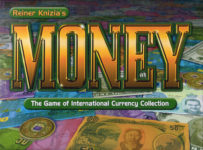


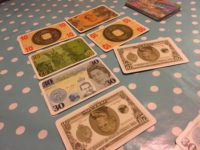
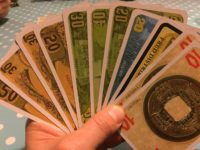


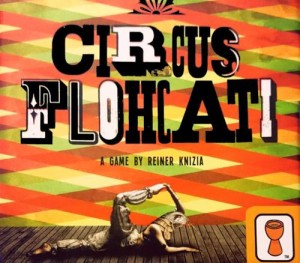

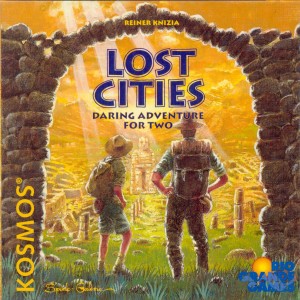
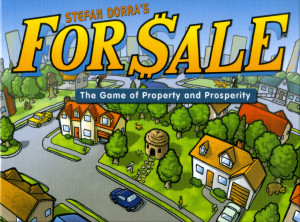
Sam says
At time of writing I've only played Money a few times, so repeat visits might change my opinion - but it feels a bit mechanical to me: swap cards for 20 minutes, and then see who swapped the best. Clever - as Reiner Knizia's games always are - but rather too repetitive to feel at the end that I wanted to play again. However one person's repetition is another's delight, and the game certainly has room for tactical manoeuvering: noting what your opponents are going for and adjusting your plans accordingly.